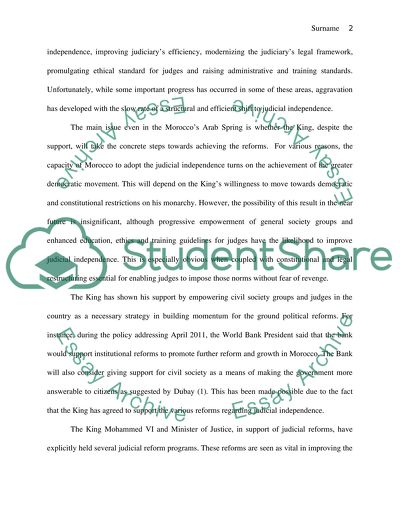Cite this document
(“Global focus Morocco : King Mohammed VI Research Paper”, n.d.)
Global focus Morocco : King Mohammed VI Research Paper. Retrieved from https://studentshare.org/english/1446609-global-focus-morocco-yt-king-mohammed-vi
Global focus Morocco : King Mohammed VI Research Paper. Retrieved from https://studentshare.org/english/1446609-global-focus-morocco-yt-king-mohammed-vi
(Global Focus Morocco : King Mohammed VI Research Paper)
Global Focus Morocco : King Mohammed VI Research Paper. https://studentshare.org/english/1446609-global-focus-morocco-yt-king-mohammed-vi.
Global Focus Morocco : King Mohammed VI Research Paper. https://studentshare.org/english/1446609-global-focus-morocco-yt-king-mohammed-vi.
“Global Focus Morocco : King Mohammed VI Research Paper”, n.d. https://studentshare.org/english/1446609-global-focus-morocco-yt-king-mohammed-vi.


